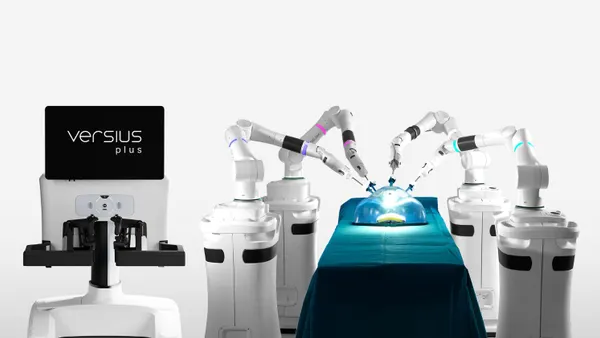Dive Brief:
-
FDA has alerted healthcare professionals to post-approval data linking Abiomed’s temporary right heart pump system to a far higher mortality rate than was seen in clinical development.
-
Less than 20% of participants in the post-approval study met the primary survival endpoint, compared to more than 70% in the clinical trial that won Abiomed approval for its Impella RP System.
-
The divergence may stem from differences in the patient populations enrolled in the pre- and post-approval studies, leading Abiomed and FDA to advise cardiologists to consider the inclusion and exclusion criteria before using the system. Still, the letter spooked investors throwing the stock down 6% on Monday.
Dive Insight:
Abiomed won approval for its Impella RP System in 2017 on strength of data from a study of 60 patients who required temporary right ventricular support as a result of acute right heart failure or decompensation. In that study, 73% of patients survived for at least 30 days after the removal of the device. That persuaded FDA to approve the device but request a post-approval study.
Now, FDA has seen early data from the post-approval study. Of the first 23 patients enrolled, 19 died before reaching the 30-day survival target. That resulted in an interim survival rate of 17%.
The 56 percentage point difference between the pre and post-approval survival rates prompted FDA to write to cardiologists and other healthcare professionals. While FDA still thinks the benefits of the device outweigh the risks when used appropriately, it has concerns about whether physicians are treating the right patients with the Impella RP System.
In the letter, FDA discusses the survival data and differences in the patients enrolled in the pre and post-approval study. Less than one-third of patients in the post-approval study would have met the pre-approval enrollment criteria, for reasons including being in cardiogenic shock for more than 48 hours or suffering in-hospital cardiac arrests. Abiomed contends this factor explains the different survival rates.
“These patients were critically ill and, in some cases, had been in profound shock for more than 48 hours. As such, these patients were statistically sicker and may not have been appropriate candidates to benefit from right side mechanical circulatory support,” Abiomed wrote in a statement discussing the data.
Abiomed and FDA have each written to healthcare professionals with advice about how to select patients for treatment. To help guide these decisions Abiomed created an FDA-approved checklist. The agency will work with Abiomed to ensure labeling reflects post-approval data.
There is some doubt about what the data means for Abiomed’s business. One interpretation is that the Impella RP System may no longer be used in patients who do not meet the pre-approval study enrollment criteria. Given such patients make up 70% of the interim post-approval study population, Abiomed could therefore lose more than two-thirds of its Impella RP System sales.
The news puts a bit of a damper on its recently released third quarter earnings, which showed 30% sales growth, largely attributed to the Impella product's momentum. The device accounted for 4% of Abiomed’s total sales in the most recent quarter. With those sales potentially under threat, investors drove Abiomed’s share price down by 6% after the FDA shared its letter to cardiologists.
Some sell-side analysts put a rosier spin on events, though. The team at Jefferies argued that “one could even see the silver lining where there is now evidence that the pump should be used sooner and patients not allowed to decompensation so dramatically before implantation.”
Leerink analysts took a bit more cautious approach.
"We have to do our own physician checks to ensure this isn't being viewed as an issue for Impella RP across all patients, and rather is limited to the very sick patients who fall outside the appropriate patient selection criteria," they wrote in a note. "But ultimately, our sense of FDA’s tone in reading the letter is that perhaps some PAS data will be included in the label to help guide physicians on patient selection."
Regardless of whether the data cause sales to grow or contract, the post-approval study is unlikely to derail Abiomed provided the concern remains contained to that device. Right-side heart failures are relatively rare. Jefferies puts the annual opportunity at 10,000 patients, compared to more than 220,000 across shock and protected percutaneous coronary intervention.











